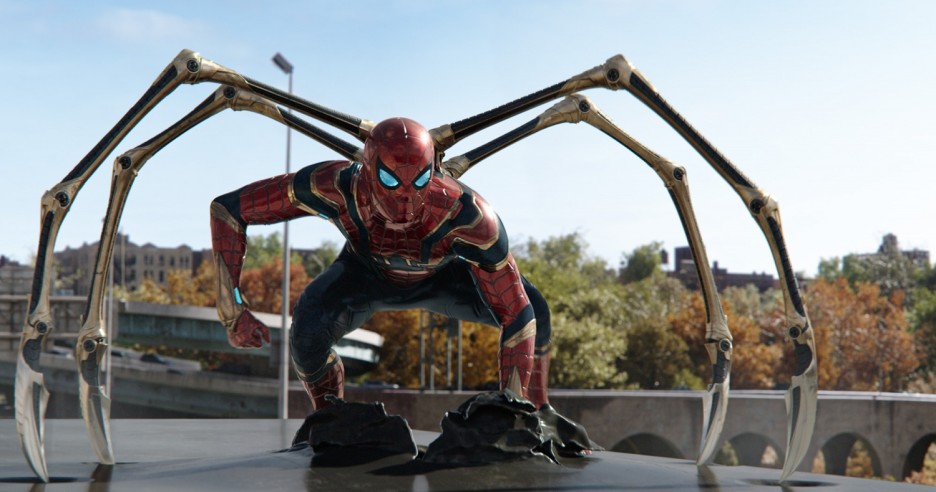Spider-Man' Burn Out: Why 'Spider-Man: No Way Home' Felt So FAMILIAR

(SPOILERS THROUGHOUT!!)
When I watched Marvel's Spider-Man: No Way Home a couple weeks ago, a nagging feeling came over me. While I also felt the feelings of elation any Spider-Man fan felt when the actors from Sam Raimi and Marc Webb's Spider-Man series reprised their roles in No Way Home in emotionally satisfying ways, there was a small part of me that wished I was more impressed with the final result.
After returning home for the holidays and ruminating on why I came away from the film feeling that way, I figured it out. Spider-Man: No Way Home didn't impress me because it felt familiar. The film reminded me of yet another entry into the Spider-Man film canon, Spider-Man: Into the Spider-Verse. How?
I have a theory.
"Spider-Man: No Way Home" Is a Retread of Familiar Story Beats
1. Due to a Grave Mistake, the Multiverse Was Opened And Spider-Related Characters From Other Universes Came Into Ours
While the stories of Spider-Man: Into the Spider-Verse and Spider-Man: No Way Home may seem different from the outside, the initial story beats are reminiscent of each other. In Into the Spider-Verse, Kingpin opens up the multiverse to bring back another version of his family, after his wife and child from this universe are killed running away from him after learning of his criminal deeds.
Meanwhile, Benedict Cumberbatch's Doctor Strange accidentally opens up the multiverse when conducting a spell that would make the world forget Spider-Man's true identity in No Way Home.
After this initial transgression, other tangential Spider-Man characters make their way from their universes to ours. In Into the Spider-Verse, it's only other Spider-People that are let in, while in No Way Home, it's a combination of Spider-Man villains and other Peter Parkers.
While the reasons behind these story beats may differ, how they unfold makes watching No Way Home feel like undergoing unintentional deja vu.
2. Giving Aunt May the "With Great Power" Line, And Then Killing Her Off
Perhaps the most iconic line in any Spider-Man media is the, "With great power comes great responsibility" line often uttered by Peter's dear Uncle Ben. However, since Tom Holland's Peter Parker lost Uncle Ben years before the events of "Captain America: Civil War," the first MCU film to feature Spider-Man, the writers of No Way Home gave this famous line to Marisa Tomei's Aunt May.
I knew this moment would be a retread as soon as Aunt May said the "With great power" line. I was certain her character wasn't going to last long.
Sure enough, Willem Dafoe's Green Goblin kills Aunt May not long after - it was all so predicable!
3. Peter Parker Being Comforted By Other Spider-Men After Failure
The big moment that tipped me off that maybe I had seen scenes from this movie before (but done better) was when Tom Holland's Peter Parker is comforted by Tobey Maguire and Andrew Garfield's Peter Parkers after Holland's Peter fails to save Aunt May.
In Into the Spider-Verse, a similar scene happens when Miles Morales is unable to save his beloved Uncle Aaron. The other Spider-People show up to Miles' dorm room to comfort him and express that they understand how he's feeling, because they've all lost someone dear to them.
Both scenes express how the only people who understand Peter or Miles' pain are the other Spider-People who have had similar experiences. However, the scene in Into the Spider-Verse hit home for me more.
Not only had I seen the "Into the Spider-Verse" scene first in 2018, but there was also a greater array of Spider-People with more diversity in race, age, and sex present, which drove home the idea that you can be from any background and still empathize with Spider-Man, and his plight of not being able to save everyone.
4. Peter Parker Regains Confidence to Take On the Spider-Man Mantle Afterwards
Finally, after hitting this lowest of lows, Holland's Peter regains the confidence to lead this rag-tag group of Spider-Men to take on the Spider-Man villains from other universes. This story beat is reminiscent of Miles gaining control of his powers, fully taking on his Spider-Man identity, and rejoining the Spider-People group in the breathtaking "What's Up Danger?" scene.
Seeing this extraordinary teenager reassert himself as Spider-Man feels gratifying, which is why the moment appears in both films. But something about the soaring visuals and triumphant music in the Into the Spider-Verse scene just blew me away so much more than when Holland's Peter puts aside his pain to take on one last big fight scene in No Way Home.
I cry every time I see the "What's Up Danger?" sequence. Perhaps it's a testament to the power animation can have, or perhaps credit goes to the writers - but either way, the result is the same.
So yes, while No Way Home brilliantly used the characters from the previous live action Spider-Man series, a small part of me felt disappointed. I remember reading an interview with Spider-Man: Homecoming screenwriters Jonathan Goldstein and John Francis Daley, where Goldstein mentioned starting "with a laundry list of all the things that you've seen in the other five movies" and trying "to make sure we didn't do those again."
It seems they didn't quite succed though, because with No Way Home taking on the familiar Spider-Man story beats, the film feels like a betrayal of that mindset, and instead converts the MCU Spider-Man trilogy into one long origin story.
However, considering how well the film is doing, perhaps this is what the Spider-Man fans wanted all along.
For more entertainment news and commentary, check out Enstarz! We bring you the latest on your favorite celebrities, TV shows, and films.
© 2026 Enstarz.com All rights reserved. Do not reproduce without permission.





